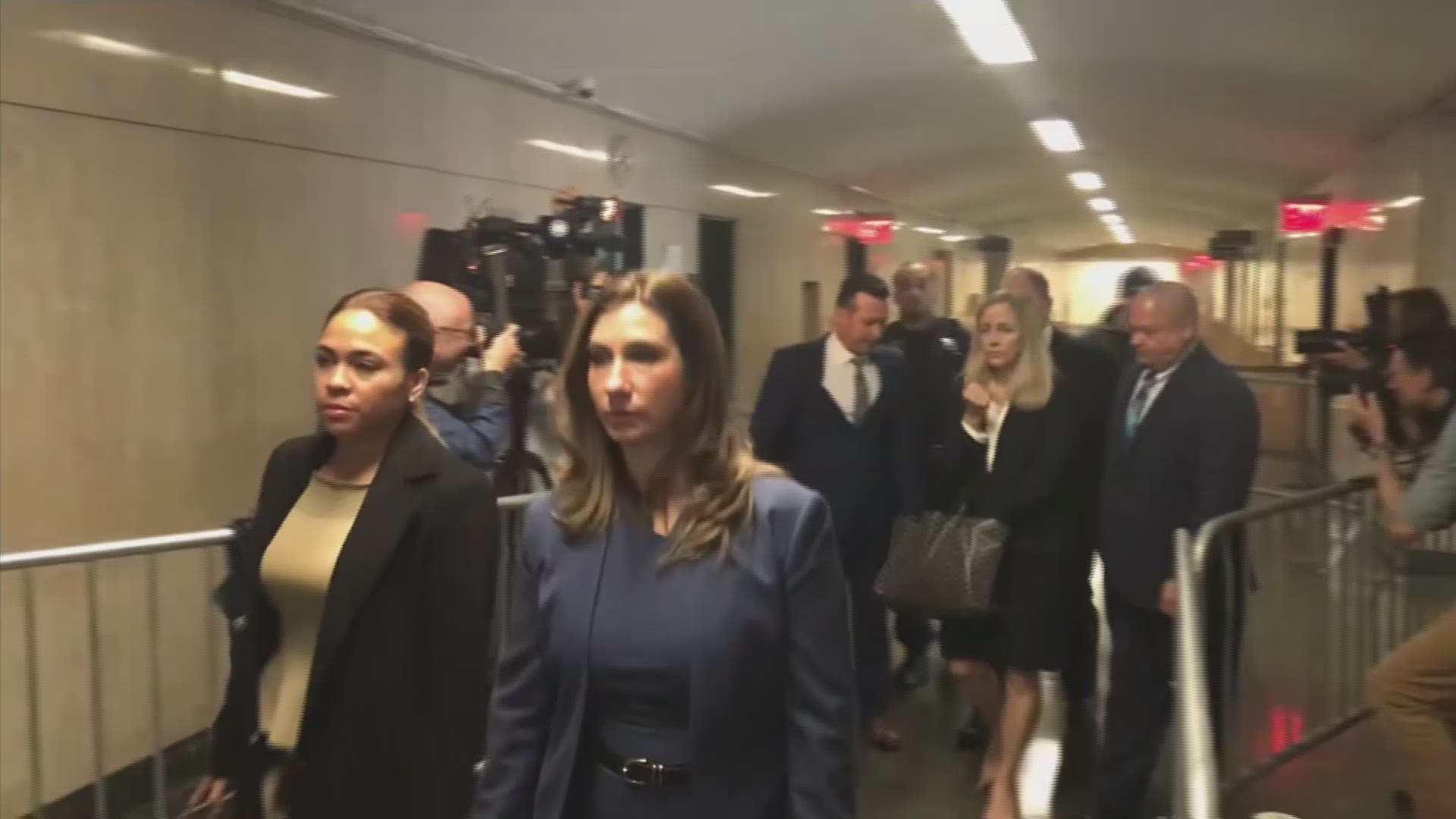Harvey Weinstein's sexual assault trial has been postponed until September, a judge said Friday after a closed-door hearing that focused on the prosecution's bid to have jurors hear from many women who say the movie mogul violated them.
Weinstein's trial had been scheduled to begin June 3, but both the prosecution and the defense indicated they would need more time to sort through potential witnesses and evidence issues. It is now set for Sept. 9.
The prosecution and defense asked that the hearing that preceded the delay announcement be held behind closed doors because it focuses on sensitive matters, such as the names of accusers.
Judge James Burke in Manhattan said closing the courtroom to the news media and public was "the only means available to avoid the tainting of the jury pool." He also rejected the news organizations' request to unseal documents related to the hearing.
The hearing, Burke said, dealt with material that "is prejudicial to the defendant and is highly inflammatory." He said news coverage would serve no other purpose than to stir negative public sentiment toward Weinstein.
Burke also denied the media organizations' request to delay the hearing so they would have time to appeal. An appellate judge denied a request by the media outlets to immediately halt the proceeding.
Burke issued his ruling after prosecutors said it was necessary to close the courtroom, both to protect Weinstein's right to a fair trial and to shield the identities of accusers whose names and allegations were expected to come up during the hearing.
"We believe it is prudent" to close the court, Manhattan Assistant District Attorney Joan Illuzzi-Orbon said.
Weinstein lawyer Marianne Bertuna argued that news coverage could influence potential jurors and that "the court cannot be complicit with the press in denying the defendant's right to a fair trial."
Lawyers for the news organizations, including The Associated Press, said the prosecution and defense arguments didn't meet the high legal standard for banning the media and the public.
Weinstein's case is "a matter of immense and legitimate public interest," and the allegations against him are already widely known, said Robert Balin, a lawyer for the news organizations.
The sides asking for the courtroom to be closed were suggesting that "somehow it is improper for the press and the public to be sitting here and report news in real time," even though that right is guaranteed by the Constitution, Balin argued.
Balin argued that the allegations against Weinstein from more than 80 women have already been widely reported and that many of them, such as actresses Mira Sorvino and Ashley Judd, have agreed to be identified publicly. But not all have, Illuzzi-Orbon said.
A lawyer for Court TV and a reporter from New York magazine also argued in favor of keeping the courtroom open.
Everyone who spoke was forced to compete with the sound of a jackhammer that rattled on and off 15 stories below the open courtroom windows.
Weinstein himself was mum as he arrived at court. Asked how he was doing, he just nodded.
He is charged with raping an unidentified female acquaintance in his Manhattan hotel room in 2013 and performing a forcible sex act on a different woman in 2006.
Weinstein, 67, has denied all allegations of wrongdoing. He pleaded not guilty and is free on $1 million bail.
Prosecutors are seeking to call as trial witnesses some of the dozens of women who have accused Weinstein of sexual misconduct but whose allegations haven't led to criminal charges. They want to show that Weinstein has had a history of assaulting women.
Prosecutors used that strategy a year ago in convicting Bill Cosby at his sexual assault retrial outside Philadelphia. Hearings pertaining to such witnesses in the comedian's case were open to the media and the public.
Perhaps expecting an onslaught of accusers taking the stand, Weinstein lawyer Jose Baez sent a letter this week to the lawyer for one of them, asking for emails he says show the woman acknowledged she had a consensual relationship with Weinstein.
The AP does not identify people who say they are victims of sexual assault unless they come forward publicly.

